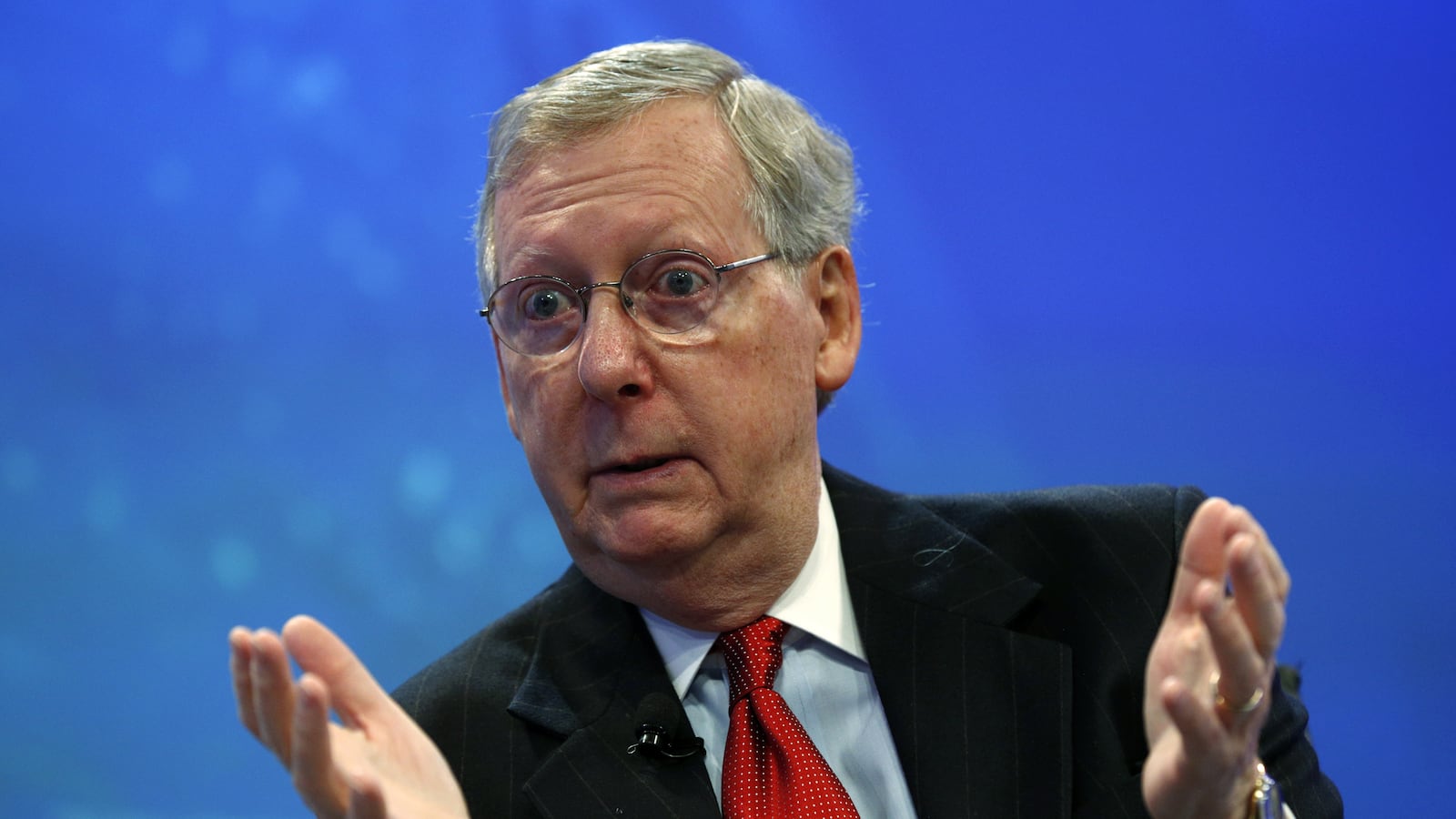Is there anyone who thinks the urgent problem we need to solve in Washington, D.C. is how to allow more spending on campaigns? Especially given that we just spent almost $4 billion during the 2013-14 election cycle?
Sen. Mitch McConnell (R-Ky.) does. At a time when the country is looking to the new Republican leadership to see where it would lead America, and how it would address our pressing public policy needs, McConnell reportedly considered attaching to a spending bill an amendment that would loosen restrictions on how much the national political parties’ campaign committees could give to their candidates to help them get elected.
The amendment would effectively remove the current limits on the amount a political party campaign committee – the National Republican Campaign Committee (NRCC), for example, or the Democratic Congressional Campaign Committee (DCCC) – could spend on what are called “coordinated communications.” These are communications (a television ad, say) made in connection with the party’s candidates’ campaigns.
Although it is unclear whether McConnell will be able to prevail at this time, his mere desire to do so does not bode well for campaign finance reform in the 114th Congress. There has been no greater foe of campaign finance reform than Mitch McConnell over the years. He opposed the 2002 Bipartisan Campaign Reform Act, sponsored by Senators John McCain and Russ Feingold, which he and his lawyers successfully struck down with the Citizens United Supreme Court decision. Reforming money in politics was a steep enough hill before, but now that McConnell is the leader of a Republican majority in the Senate, it seems likely that the Senate will become hte source of anti-reform measures.
In response to McConnell’s measure, four campaign finance reform groups wrote to senators urging them block the amendment. According to the letter, the amendment would “for all practical purposes eliminate the limitations on coordinated expenditures by political parties.”Lawrence Lessig called the proposed amendment “one more step on the road to no rules at all, one more step on the road to 10,000 families funding American politics.” And Sen. Jon Tester, who has introduced legislation to make campaign spending more transparent, said “It looks to me that he’s trying [for] less transparency.”
How would McConnell’s measure do this?
Under current election rules, there are no limits on how much political party campaign committees can spend on communications that that are technically “independent” of their candidates. So, for example, this last election, the senatorial committees of each party set up “independent” offices staffed by committee employees that then created “independent advertisements” urging the election of the party’s candidates.
Say, however, that the NRCC paid for a television ad that was suggested by a candidate. For example, a Republican Congressman called up the committee and said, “It would be really helpful if you guys would advertise on Obama’s opposition to the Keystone Pipeline because I’m from an energy state that would greatly benefit.” The ad would then count as a coordinated communication and would be subject to strict spending limits.
McConnell’s measure would loosen those restrictions by making two significant changes to the election law. First, it would reduce the kinds of ads that would be subject to strict limits. Under current law, a coordinated communication is defined as any communication “made in cooperation, consultation or concert with, or at the request or suggestion of, a candidate, a candidate’s authorized committee, or their agents” (i.e., someone authorized – explicitly or implicitly – to act on behalf of a candidate or candidate’s campaign committee).
Under McConnell’s measure, only communication controlled by or made at the direction of the candidate or an authorized committee of the candidate would count as coordinated communication. At least when the candidate has some authority and responsibility for the advertising, there are generally some lines of decency and truth observed as they are accountable for them. In this case, the lines would disappear.
Second, under current law, candidates, their campaign committees, and their agents are covered by the restrictions on spending on coordinated communications. Under McConnell’s proposal, only candidates and their campaign committees would be covered. Agents would be exempt. Which means employees and fundraisers, and anyone associated with affiliated PACs and other entities could communicate without restrictions.
The overall impact of the changes would be to give greater freedom to candidates to collaborate with political party campaign committees, and would place fewer restrictions on how much money party campaign committees could spend on their candidates. Average American voters already feel besieged by political advertising which they rightly believe is ungoverned by any authority to actually communicate anything positive or clarifying relative to the actual truth. And they rightly believe there is unlimited money being spent by anonymous sources to control the outcome, which means voters increasingly feel disengaged from the process of democracy. Why bother? The game is rigged. And ultimately this creates steadily eroding trust among voters for not just politics but the institutions of government.
It’s all very complicated of course, which is the way McConnell likes it. There is a cottage industry of lawyers driven by Team Mitch who over the last decade have done a masterful job of decimating anything standing in the way of unfettered, unlimited, anonymous funding of our system.
Just the way the Founding Fathers imagined.






